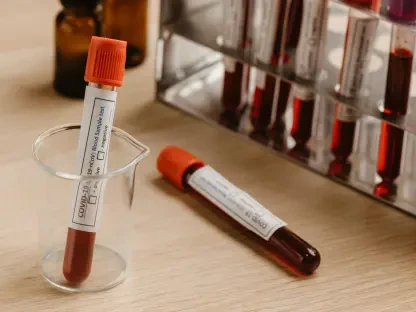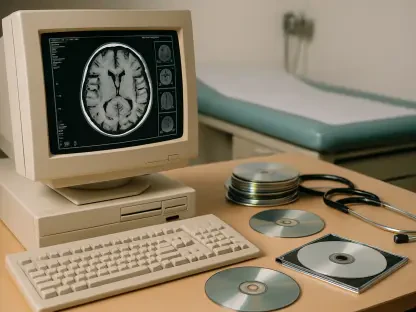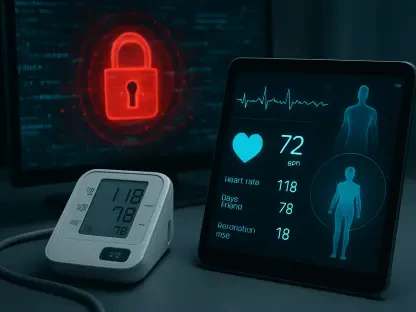In recent years, the field of Alzheimer’s disease diagnosis has witnessed a transformative development with the advent of a cutting-edge blood test. Researchers at the Mayo Clinic have validated a diagnostic blood test that could revolutionize how Alzheimer’s is detected, boasting a 95% sensitivity and 82% specificity rate. This test presents a less invasive and more cost-effective alternative to procedures like PET scans and spinal taps, which, despite their accuracy, are known for their invasiveness and high costs. Central to the blood test’s function is its analysis of plasma biomarkers, specifically Aβ42/40 and p-tau217, which are linked to the amyloid plaque buildup that characterizes Alzheimer’s disease. This advancement holds the promise of making Alzheimer’s diagnosis much more accessible and efficient.
Rethinking Alzheimer’s Detection
The Advantages of Blood Tests Over Traditional Methods
The introduction of a blood test for Alzheimer’s diagnosis could potentially shift the current paradigm from reliance on more invasive and costly procedures. Traditionally, cerebrospinal fluid analysis and PET scans have been the gold standard for diagnosing this neurodegenerative disease. However, these methods are often impractical for widespread screening due to their expense and the discomfort they can cause to patients. The primary innovation in the Mayo Clinic’s blood test is its ability to detect the same pathological changes seen in Alzheimer’s with a simple blood draw, making the process significantly more patient-friendly.
Moreover, it opens the possibility for earlier detection of the disease, which is crucial, given that early-stage identification can drastically alter the management and treatment of Alzheimer’s. As new treatments are developed specifically targeting early-stage Alzheimer’s, having a reliable, non-invasive diagnostic tool will be instrumental in improving patient outcomes. The blood test’s simplicity not only benefits the patients but could also reduce the burden on healthcare systems, allowing for more efficient allocation of resources and potentially improving clinical trial enrollment processes by quickly and accurately identifying suitable candidates.
Implications for Early Detection and Clinical Trials
This diagnostic tool marks a pivotal shift towards more accessible Alzheimer’s diagnosis, potentially revolutionizing early detection strategies. As understanding and technology evolve, early detection becomes increasingly critical, particularly as novel treatments targeting the disease at its onset gain traction. By facilitating earlier diagnosis, the blood test could play a fundamental role in treatment interventions that could slow disease progression.
The utility of the blood test extends to its potential impact on clinical trials. Selecting the right participants for trials often involves extensive time and resources to ensure proper diagnosis. A blood test simplifies this process, expediting the selection of participants and enabling faster trial commencement. This efficiency is vital in a landscape where the development of new therapeutics must keep pace with the rising prevalence of Alzheimer’s disease. The blood test offers a promising tool to streamline the clinical trial process, potentially bringing effective new treatments to market more swiftly.
Expanding Accessibility and Understanding
Addressing Diverse Needs in Alzheimer’s Diagnosis
The development of this blood test aligns with broader trends in healthcare, emphasizing inclusivity and accessibility. A significant aspect of ongoing research is the test’s applicability across diverse populations, including varying cognitive impairments and potential influences from other conditions, like those affecting kidney function that could impact biomarker accuracy. The original studies encompassed a range of participants, indicating a promising ability to adapt to different neurodegenerative conditions. This flexibility is crucial as it underscores the importance of personalized medicine, allowing diagnostics and treatments to be tailored to the individual needs of patients.
Further exploration into how these biomarkers interact with other diseases, and any confounding variables, will be key in refining this diagnostic tool’s accuracy. Testing must be expanded across different demographics to ensure the test’s reliability and validity are maintained. This effort will help optimize the test for more widespread use, ensuring it meets the diverse needs of patients globally. Such initiatives highlight the relentless pursuit within the scientific community to make advances in Alzheimer’s care as inclusive and wide-reaching as possible.
Paving the Way for Future Innovations
The blood test developed by Mayo Clinic researchers embodies a significant leap forward in Alzheimer’s diagnosis, offering a glimpse into the future of medical diagnostics. As research continues to delve deeper into neurodegenerative diseases, this test paves the way for further innovations that could shape the future landscape of healthcare. The emphasis on a non-invasive, cost-effective solution aligns with ongoing efforts to make high-quality care accessible to more patients, regardless of socioeconomic status.
Looking ahead, the potential for similar advancements in other areas of neurological research appears promising. By refining biomarker technology and further integrating it into clinical practice, healthcare professionals may transform how neurological conditions are diagnosed and treated. This progress is significant, not only for Alzheimer’s patients but for anyone affected by cognitive impairments. As technology continues to advance, the hope is to create a healthcare system that is both responsive and adaptable to the evolving needs of patients worldwide.
Embracing a Future of Improved Care
The advent of a blood test for diagnosing Alzheimer’s marks a potential revolution in the traditional diagnostic methods which rely heavily on cerebrospinal fluid analysis and PET scans. These standard methods are not only invasive but also costly, posing limitations for widespread Alzheimer’s screening. The Mayo Clinic’s blood test offers a breakthrough by detecting Alzheimer’s-related pathological changes through a simple blood draw, thus making the diagnostic process far more accessible and less discomforting for patients. This innovation paves the way for earlier detection, crucial for effective management of the disease. Early-stage diagnosis is vital as it dramatically influences the treatment landscape, especially with new therapies aimed at early-stage Alzheimer’s patients. A non-invasive, dependable diagnostic tool could transform patient care, reducing the strain on healthcare resources and optimizing clinical trial recruitment by ensuring swift, accurate identification of eligible candidates. Consequently, this test not only enhances patient experience but also streamlines healthcare operations.









